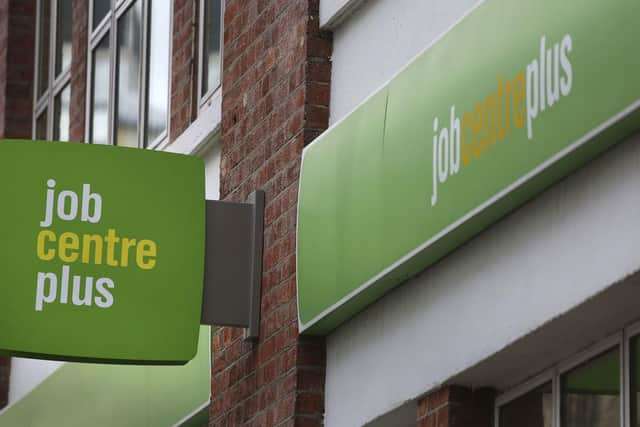A fifth of people in Wigan in "insecure work"
and live on Freeview channel 276
The Work Foundation at Lancaster University has found one in five of those in employment in England are in “unstable” jobs.
They called on the Government to introduce an Employment Bill in the next parliament that “puts job quality and security at the heart of labour market regulation”.
Advertisement
Hide AdAdvertisement
Hide AdThe figures show 20.7 per cent of workers in Wigan were in severely insecure jobs – a higher rate than the average of 19.9 per cent in the Greater Manchester Combined Authority area.


“Insecure work” is defined by the think tank as employment that is involuntarily temporary or part-time, or when multiple forms of insecurity come together, such as casual or zero-hours contracts, or low or unpredictable pay. The analysis is based on the Office for National Statistics Labour Force Survey 2021-22.
Rebecca Florisson, principal analyst at the Work Foundation, said: “Being trapped in insecure work isn’t just about poor pay.
“Research shows those in insecure work also experience worse health, living standards and future job prospects so it is an issue that affects all aspects of life.”
Advertisement
Hide AdAdvertisement
Hide AdShe added: “Communities across the country are already struggling with the lack of secure, good quality jobs in their areas, which means that the Government's focus on getting people into 'any' job is both unhelpful and harmful.”
The analysis suggests just 44 per cent of Wigan workers were in secure employment and a further 35.3 per cent had a moderately or low insecure job.
The think tank also found variation in the levels of severely insecure work among different worker groups.
In the Greater Manchester Combined Authority area, a higher proportion of female workers (25 per cent) were in unstable employment than male (15.3 per cent).
Advertisement
Hide AdAdvertisement
Hide AdThose from ethnic minorities also suffered greater inequality, with 29.8 per cent having jobs considered severely insecure, as opposed to 17.8 per cent of white workers.
Ben Harrison, director of the Work Foundation, said: “We know that those who face wider structural disadvantage in the labour market are more likely to find themselves in these kinds of jobs.
“Women, those with disabilities and those from ethnic minority backgrounds are often particularly at risk, leaving these worker groups even more vulnerable to the cost-of-living crisis.
“The reality is, people in severely insecure work are paying the price of Government’s failure to strengthen employment rights and protections during this Parliament, and this failure is also holding back wider levelling up ambitions.”
Advertisement
Hide AdAdvertisement
Hide AdThe Work Foundation said insecure jobs tend to be concentrated in sectors such as hospitality, social care and administrative services, but they found job security within these sectors also differed wildly across the country.
Overall, in the Greater Manchester Combined Authority 51.1 per cent of those working in accommodation and food services were in insecure work, while 18.1 per cent of health and social care workers and 32.9 per cent of administration and support workers were.
A Government spokesperson said: “Zero hours contracts are an important part of the UK’s flexible labour market helping people balance work around other commitments, and the government has consistently acted to ensure employees are protected in these roles.
“Numbers in temporary work due to an inability to find permanent roles are down almost 200,000 since 2010.